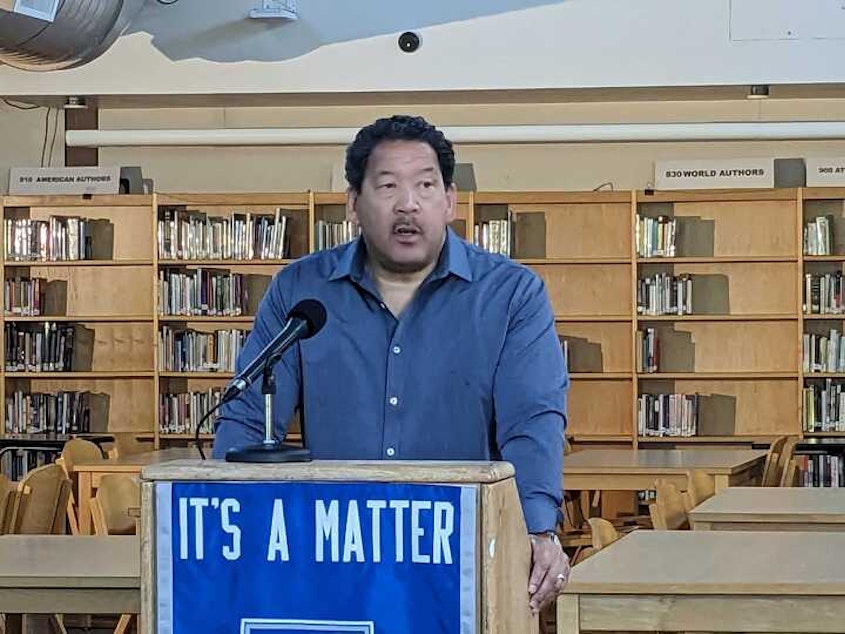Seattle launches new effort to address youth mental health crisis

Seattle leaders announced a new initiative this week intended to address the mental health crisis facing youth in the city.
The effort aims to increase education and awareness among adults in various sectors so they can recognize and respond to signs of mental distress.
At a press conference at Ingraham High School on Wednesday, Seattle Mayor Bruce Harrell acknowledged the unprecedented mental health needs young people have today.
“The stakes have changed,” Harrell said.
“How can you learn when you are facing trauma, pain, stress, anxieties? How can you be all you can be — your authentic self — when you have to look over your shoulder, constantly worried about gunfire, violence, bullying?” he added.
Students speaking at the press conference identified gun violence, climate change, racial disparities, social media, and the pandemic as some of the many factors contributing to declining mental health among their peers.
Diagnoses of mental health disorders among youth have increased sharply over the past few years, but resources and treatment remain scarce.
Sponsored
City leaders say the new initiative, dubbed "Reach Out Seattle," will create a unified approach to prevention and early intervention, helping young people access the resources they need to lead healthy lives.
"The goal is to ultimately decrease the need for high-intensity, in-patient hospitalizations by empowering parents, caregivers, and trusted adults to be first responders in the community," said Dr. Leslie Walker-Harding, Senior Vice President and Chief Academic Officer at Seattle Children's Hospital.
Community learning programs will be created in consultation with young people and experts, Walker-Harding added, to educate those who spend time with young people to recognize the signs of someone struggling.
Just as some community members are trained to provide first aid in a physical health emergency before an injured person gets to a hospital, this initiative aims to provide tools to respond to mental health distress in young people, outside of the clinical setting.
The community learning programs are not yet available.
Sponsored
City officials say they’ll likely begin this fall, and will be culturally responsive and focused in communities with the highest burden of health inequities.
“By creating a coordinated system with all the sectors of the city, there won’t be a wrong door. Every door will be the right door for support and services for our youth,” Walker-Harding said.
Chetan Soni, Executive Director for the Seattle Student Union, said a wraparound approach is needed for youth mental health services.
"Adults need to be able to talk to youth about these issues and create spaces, both in school and out of school, where students and young people can feel like they belong…we need to know we have a support system.”
Soni said more counselors and therapists are also needed, something students have called for from Seattle Public Schools.
Sponsored
The city is kicking off this new initiative with public service announcements on social media and in city sectors relevant to youth, in an effort to increase awareness and de-stigmatize conversations around mental health.
The training component for families and community members is still being developed.




